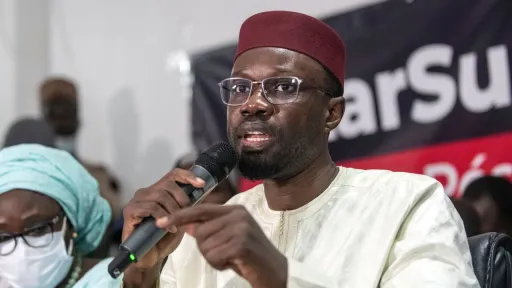By Brian Okoth
Uncertainty continues to grow in the job market world over about how artificial intelligence (AI) would affect employment in the near future.
The question that has divided opinion almost down the middle is whether AI will lead to a significant reduction of the available jobs.
Europe’s Scientific Foresight Unit defines AI as systems that display intelligent behaviour by analysing their environment and taking action – with some degree of autonomy – to achieve specific goals.
Mutembei Kariuki, the co-founder of AI service company Fastagger Inc, which is based in Nairobi, Kenya, says the specific goals AI aims to achieve are efficiency, increased productivity, quicker data analysis, prediction of the future market behaviour, and reduction in operating costs.
“AI technology has been misunderstood by many people. If you randomly asked someone what they think AI is, there is a high probability they would tell you it is the use of robots and machines to do the work that human beings are currently doing,” Kariuki tells TRT Afrika.
“No, that is not what AI does,” adds Kariuki, stating that the technology is being used by companies and research firms to assist in decision-making.
“In simple terms, AI is the technology that allows employees to do their jobs faster and more efficiently by quickly analysing data, predicting market response, helping in identifying possible funding sources, and reducing the cost of doing business."
Millions of jobs
Over the last decade, the use of AI in decision-making has grown exponentially, with several sectors such as finance, national security, healthcare, criminal justice, and transportation adopting it.
Different studies have projected the advent of AI could declare millions of employees’ roles redundant by 2030, but at the same time, create a significantly high number of new jobs that require technical skills.
A World Economic Forum survey published on April 30, 2023, estimated that some 14 million jobs would be lost globally by 2027.
The study said whereas 83 million job positions would be declared obsolete due to AI, some 69 million new job opportunities will arise, creating a 14-million net loss of jobs by 2027.
The African Development Bank (ADB) in 2019 projected that some 100 million youth on the continent won’t be able to find any new jobs by 2030, with technological factors cited as part of the causes for the scarcity.
Upskill
Kariuki says young people seeking jobs in modern times should endeavour to “upskill” and embrace technology to enhance their suitability and productivity, instead of seeing technology as a threat on their job security.
“When the personal computer was invented [in 1971], there were job positions that were affected. They include typist, messenger and data entry clerks, among others,'' Kariuki recalls.
''However, there were thousands of new jobs that emerged as a result of the advent of the personal computer. They include graphics designers, computer scientists, programmers, computer engineers, and many more.”
A report titled The Future of Work in South Africa by management consulting firm, McKinsey & Company, says displacements in the job market as a result of technological advancements are “unstoppable”.
“Although their impact will be disruptive, these technologies represent an enormous opportunity to reignite productivity, income and economic growth in South Africa,” says the report.
It added that machine learning, artificial intelligence and advanced robotics have the potential to create “millions of high-quality jobs”.
Kuseni Dlamini, the chairperson of the Massmart Holdings, a wholesale and retail chain in South Africa, has urged employers to adequately equip their employees with advanced technological skills to facilitate their reinvention for the new job market.
“We must recognise certain jobs are going to be disrupted. So, employers must manage the transition from their current skills or roles to jobs of the future. New training and career-development interventions will be needed to enable people to reposition themselves for the demands of the future,” says Dlamini.
Automation
The report by McKinsey & Company estimates that machine learning, artificial intelligence and advanced robotics could lead to the loss of 3.3 million existing jobs in South Africa by 2030.
It, however, projects that some 4.5 million jobs would be created, causing a net gain of 1.2 million new employment opportunities.
The survey says the nature of the new 1.2 million jobs is yet to be known, though they would be in the technological sector.
More than 570,000 new jobs will be in the healthcare and social assistance sectors and more than 260,000 in the construction sector, the study says.
“Our analysis of work activities, indicated that there are few job types that are 100 per cent automatable. For example, in data-processing roles such as payroll officers and transaction processors, 72 per cent of activities are potentially automatable," says the McKinsey & Company report.
"Jobs in these roles will, therefore, not be completely replaced, but they might decline in numbers as fewer people are required to perform the same roles.”
The McKinsey Global Institute analysis found that 60 per cent of jobs have at least 30 per cent constituent work activities that could be automated.
Most affected
The South African study found that by 2030, the retail sector would likely lose the highest number of jobs to artificial intelligence and other technological advancements – some 334,000 jobs.
It was followed by administrative, support and government sector (309,000 jobs), manufacturing (231,000), transportation and warehousing (186,000); agriculture, forestry and fishing (87,000), and the real estate sector (20,000).
The information sector in South Africa is projected to lose at most 7,000 jobs by 2030.
The sectors that are likely to see a significant increase in the number of job opportunities with technological advancement in South Africa include healthcare (570,000 new jobs), construction (261,000) and other emerging services (152,000).
The study also projects that the increase will likely be witnessed in scientific and technical services (112,000), educational services (110,000), arts and entertainment (48,000), accommodation and food services (28,000), and wholesale trade (23,000).
Prof. Tawana Kupe, the Vice-Chancellor of the University of Pretoria, says he “does not believe that robots are just going to eat up people’s jobs.”
“Technology can free people from routine, repetitive work and enable them to take on higher-level work, decision-making and critical thinking,” he said as quoted in the McKinsey & Company report.
Mutembei Kariuki says artificial intelligence can come in handy in nearly all sectors, and improve the quality of work output, save on time and enhance understanding of the customers and clients.
“Let’s take the example of an agricultural research institute, where AI can be incorporated to help discover better irrigation methods, better drought-resistant seeds, among others. This would lead to an increased productivity and even an improved number of jobs in the long run,” he tells TRT Afrika.
“In the entertainment sector, a musician such as Davido from Nigeria can use AI to promote his content on social media. AI can analyse an audience’s listening habits and recommend Davido’s songs to that person who likes his music. Eventually, his creative work would reach a higher number of people than it would have without AI-enabled distribution."
Kariuki adds that in the education sector, more job opportunities would arise, as teachers of AI and its workings would be needed.
“The exciting opportunities would benefit people building AI platforms and those using AI platforms,” he says.
Climate change
Joost Muller, the Business Development Manager at Hello Tractor, a company that uses AI to assist farmers in Africa improve their agricultural produce, says AI would help combat the challenges caused by climate change.
Muller observes that in Africa, up to 80 per cent of the population is heavily dependent on rain-fed agriculture. He adds that in most cases, farmers rely on intuition and experience to grow their crops and feed livestock.
''As climate change continues unabated, it is becoming difficult to rely on rainfall, intuition and experience alone. An AI warning system could monitor farming activities, support precision agriculture using high resolution satellite imagery and remote-sensing technology,” Muller tells TRT Afrika.
There are, however, fears that the gap between Africa and the developed nations could widen even further during the artificial intelligence era.
With AI technology being expensive to build and maintain, observers say countries that have little disposable funds – such as those in some parts of Africa and other third-world regions – could be disadvantaged when it comes to incorporating AI in everyday operations.
Revolution
“If you ask me, I’d say AI will provide Africa with the opportunity to catch up with the rest of the world. However, if Africa doesn’t grab that chance, then it is true that the development gap would widen even further,'' says Kariuki.
''Unlike the previous revolution eras such as agrarian and industrial ages, the AI revolution is unfolding right before the eyes of Africans. They should grab the opportunity and run with it,” he adds.
Just like other forms of technology, there are fears that AI could lead to labour infringements such as violation of intellectual property rights and intrusion. Already, AI companies in the United States are facing class action lawsuits for various alleged breaches of people’s rights.
Dr. Carlos Lopes, a former Executive Secretary of the United Nations Economic Commission for Africa, tells TRT Afrika governments should do everything possible to ensure that even when AI is rolled out in large scale, people’s data is protected.
“Today, the biggest corporations in the world work towards mining and processing data. Africa has to be much more attentive towards international negotiations to protect the data that its countries should possess and be sovereign about,” he says.
Will AI wipe out most of the existing jobs in Africa and other parts of the world? The short answer is no.
As Oren Etzioni, the Chief Executive Officer of the Allen Institute for Artificial Intelligence, puts it: “To say that AI will start doing what it wants for its own purposes is like saying a calculator will start making its own calculations.”























